Description
ABSTRACT
Data Privacy: A Need for a Comprehensive Legislation in Nigeria
Emma Ndiyo*
Data privacy is a new realm of human right which becomes imperative with the modern innovations of technology. This article argues that the right to privacy though guaranteed by the Constitution of the Federal Republic of Nigeria and recognised by a number of
majorly sector-specific regulations, is inadequate for the data protection right (or right to privacy) as is currently required and expected in Nigeria in view of internationally accepted best practices and the data protection laws in other jurisdictions with the European Union as a case study. It concludes that Nigeria needs to enact a more comprehensive data protection law while applauding the attempt already made in this regard.
Keywords: Data privacy, data protection, social media, best practices, Nigerian constitution, regulatory guidelines.
INTRODUCTION
Now and then, personal information of Nigerians is collected and processed by both private and public institutions. These institutions that collect individuals’ personal information include the National Identity Management Commission (NIMC) through their issuance of the National Identity Number (NIN) under the provisions of National Identity Management Commission Act (NIMC Act)1; the Central Bank of Nigeria (CBN) and other financial institutions, which in 2014 commenced the collection of biometrics and additional personal information of Nigerians for the issuance of the Bank Verification Number (BVN)2, the Independent National Electoral Commission (INEC) which issues the Permanent Voters Card (PVC) required for participation in voting exercise Nationwide; the Nigerian Communications Commission (NCC) with their Subscriber Identity Module (SIM) registration initiative in partnership with telecommunication companies in Nigeria most of which have foreign affiliations.
Section 2 of the National Information Technology Development Agency NITDA defines3 as:
Any information relating to an identified or identifiable natural person (data subject); information relating to an individual, whether it relates to his or her private, professional or public life. It can be anything from a name, address, a photo, an email address, bank details, and posts on social networking websites, medical information, or a computer’s IP address.
* LL.B, BL. Associate at Accendolaw, Lagos.
- Act No.23 2007
- CBN Economic Report for the first Half of 2014. accessed 15 May 2018
- Personal Data Guidelines NITDA Data Protection Guidelines 2017 accessed 15 May 2018

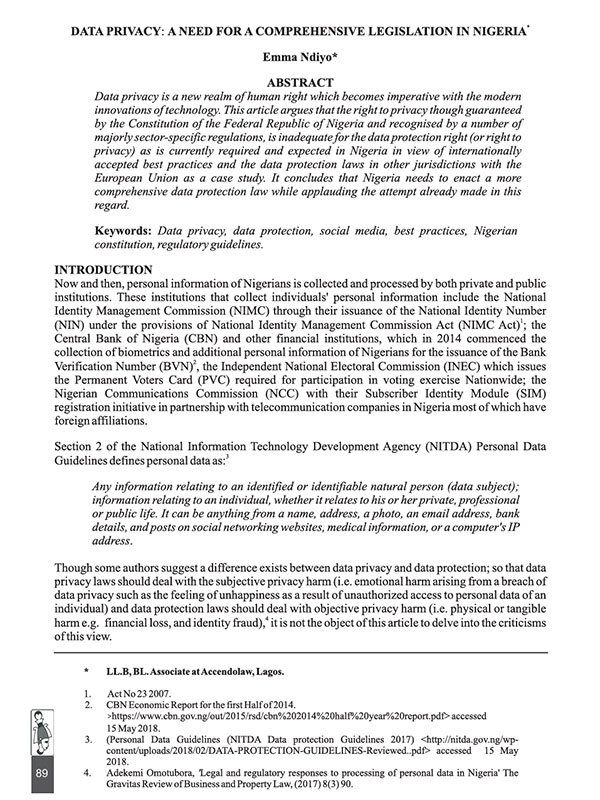
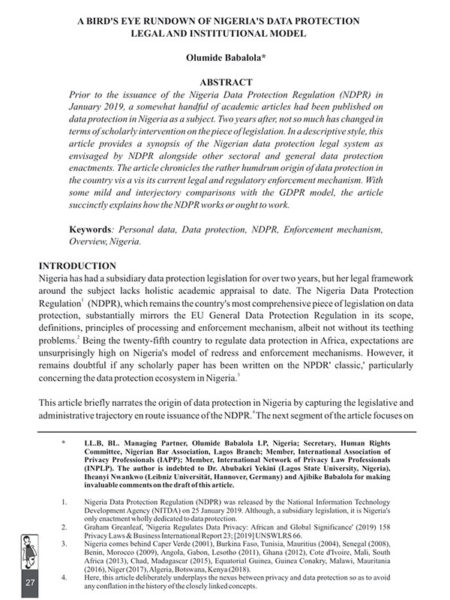
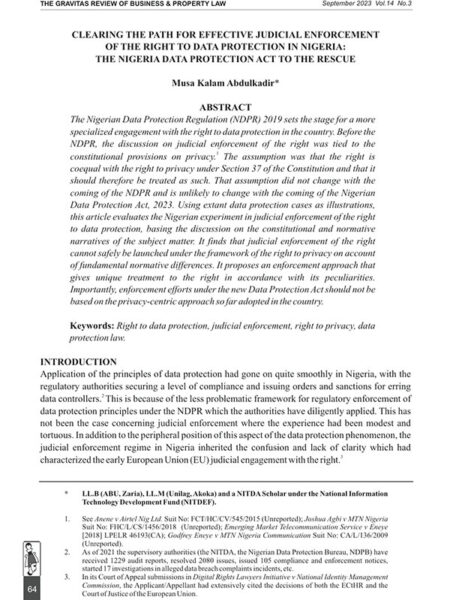
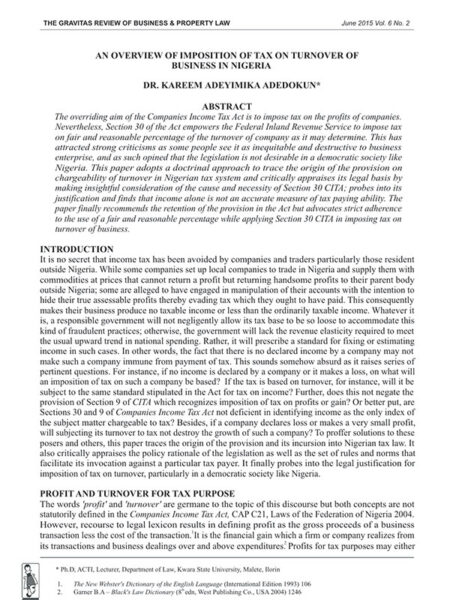
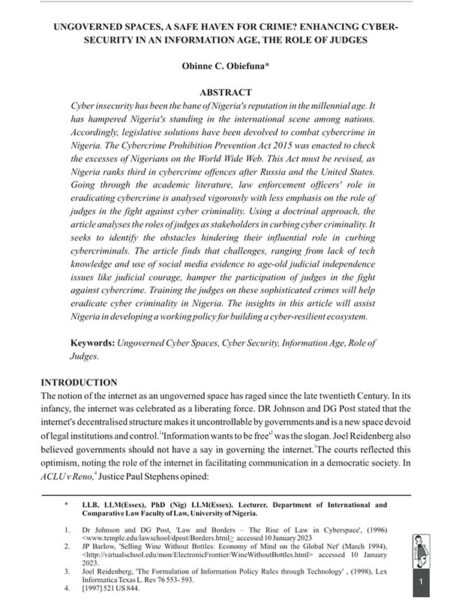


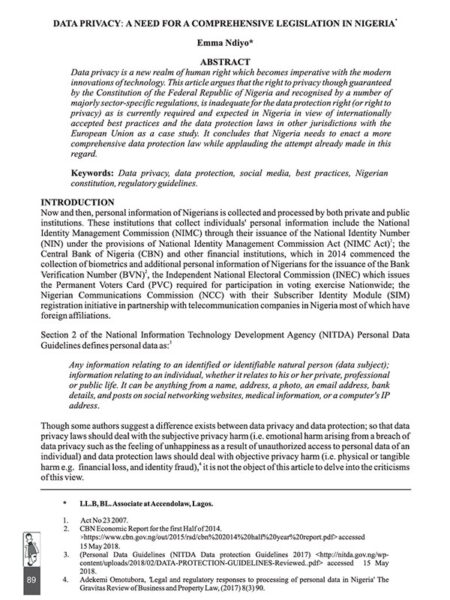
Reviews
There are no reviews yet.